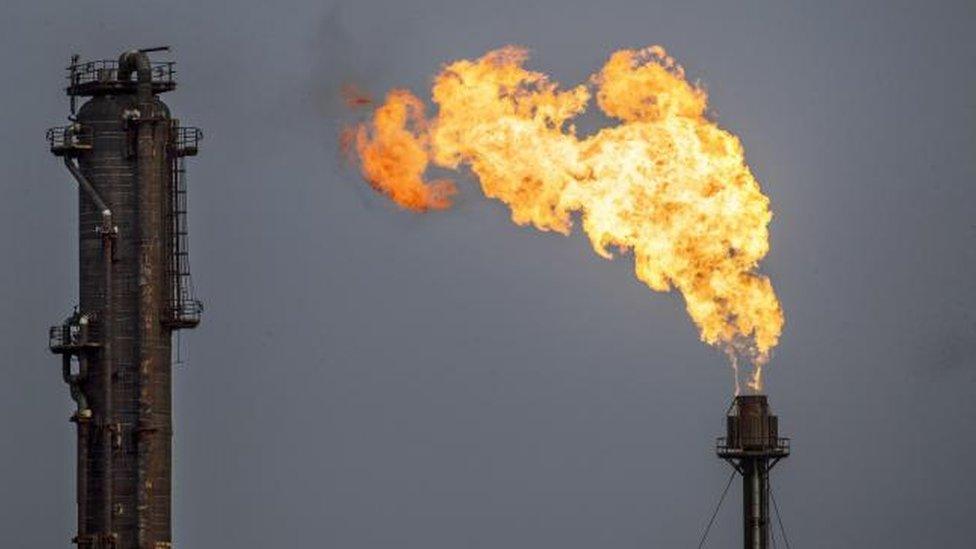Mossmorran: ExxonMobil flaring event 'low' on the air quality index
- Published
Footage on social media showed flaring illuminating the night sky
Low levels of chemicals have been recorded in the air close to a Fife petrochemical plant during an unplanned flaring event.
The air quality was monitored at three sites around the ExxonMobil facility at Mossmorran during three days of flaring earlier this month.
Residents said "light pollution turned night into day" and "extensive noise" meant they were unable to sleep.
ExxonMobil has apologised for the incident between 12 and 15 August.
The Lochgelly monitor was put in place on 4 July. The other two monitors were erected on 14 August - two days into the unplanned flaring event.
Sepa said it deployed the monitoring equipment at Auchtertool, Donibristle as they were "forecast to be predominantly downwind of the Fife Ethylene Plant (FEP) over the next week".
The daily air quality index has four different distinctions of air quality. These results fall into the lowest category which means people can "enjoy usual outdoor activities".
Response team
But James Glen, chairman of the Mossmorran Action Group, told the BBC Scotland news website that Sepa missed the key monitoring time.
He said: "They never monitor at the initial flaring when there is black smoke and a high volume of unburnt hydrocarbons.
"They have to get a response team together, which could take several hours before they can actively monitor the pollutants.
"The Lochgelly monitor wasn't based down wind so that monitor is only useful when the wind direction comes into Lochgelly but even then they are only focussing on a small subset of pollutants emitted.
"We've been calling for permanent time based monitors in key locations across central Fife as they would then be able to capture flaring events when the plant is omitting unburnt hydrocarbons or in other words black smoke."
ExxonMobil apologised for the incident but also admitted "low reliability" in the ground flares it uses, meaning excess gas is instead being diverted to its towers.
That has led to increases in noise and light pollution, which the company said it hoped to eradicate by 2024.
- Published22 August 2019
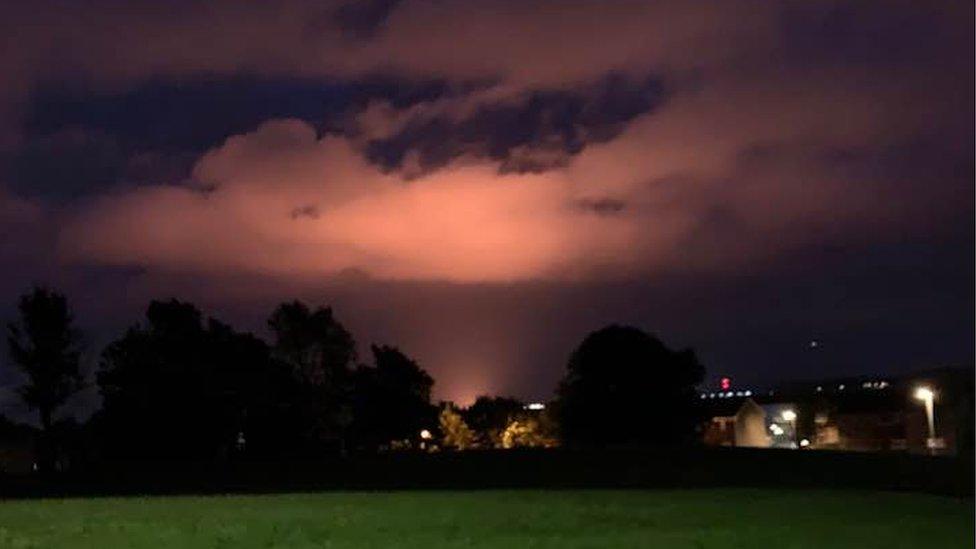
- Published13 August 2019
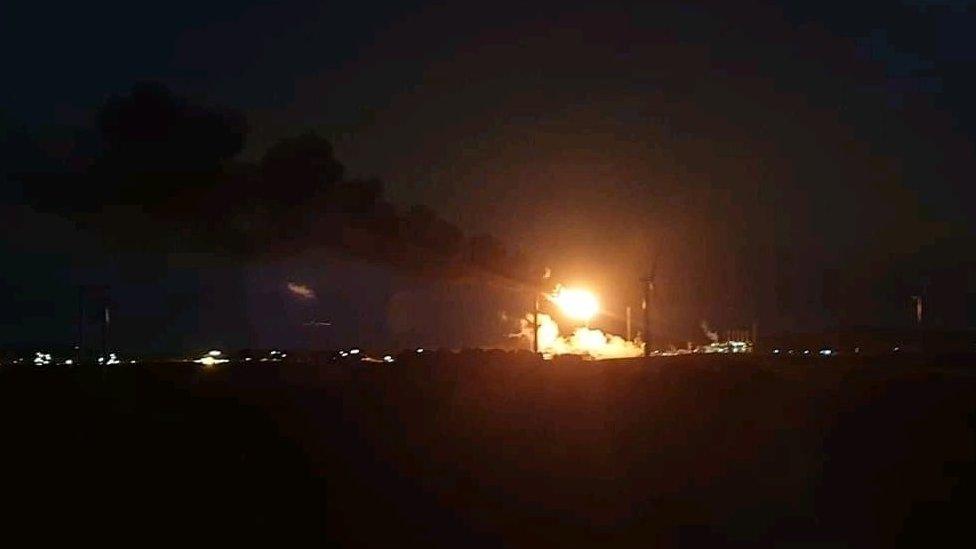
- Published10 August 2019
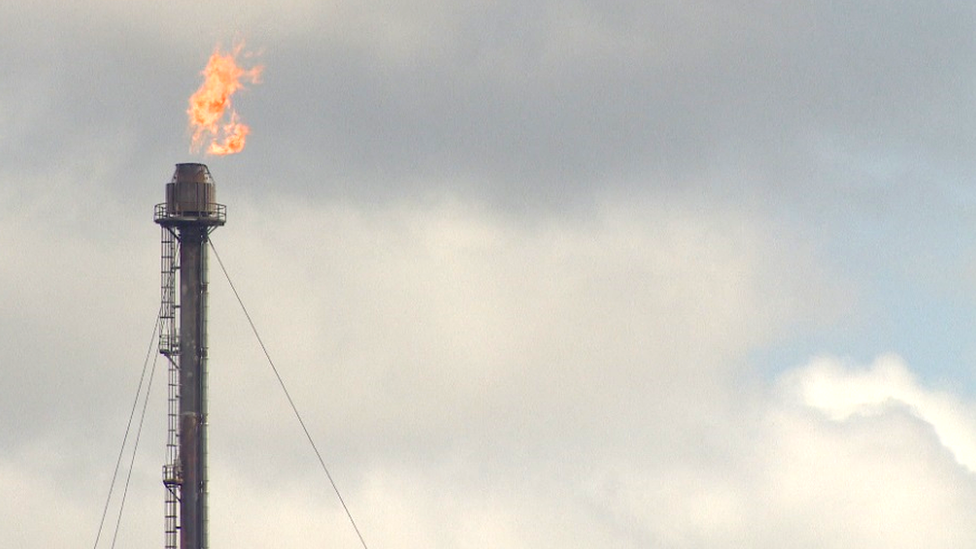
- Published30 June 2019
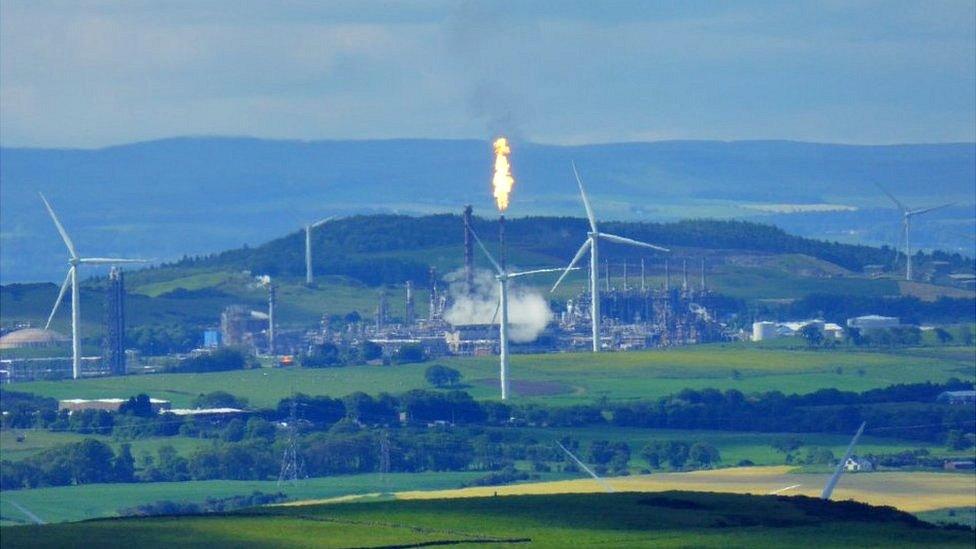
- Published14 June 2019
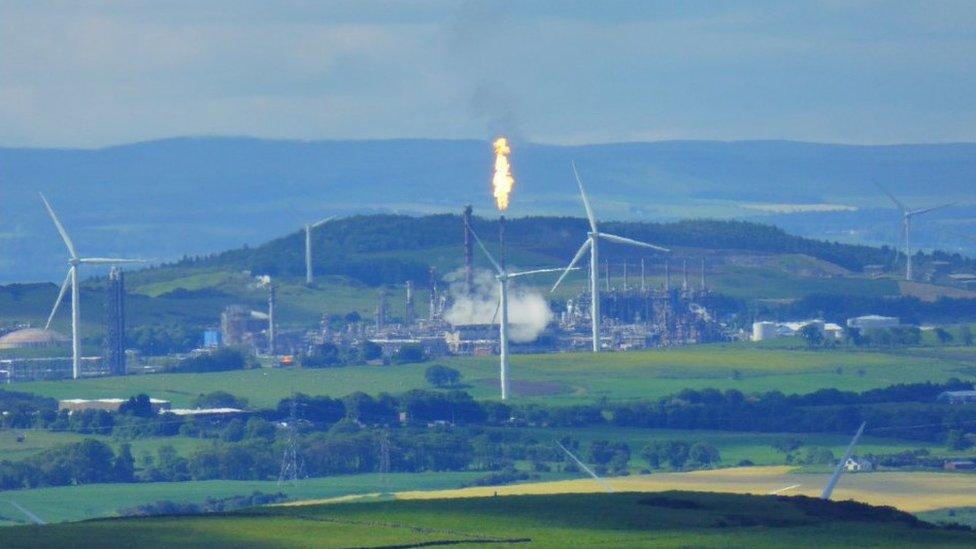
- Published27 April 2019
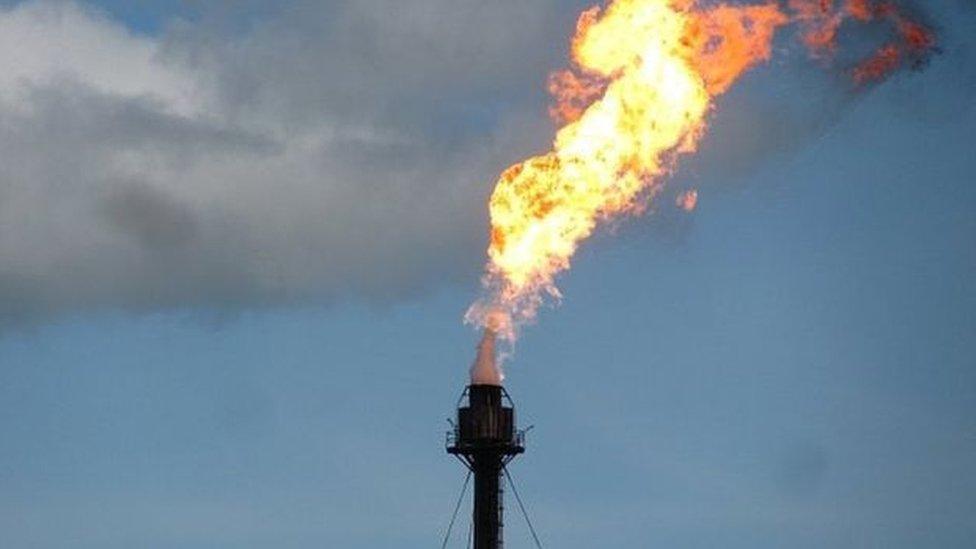
- Published23 April 2019
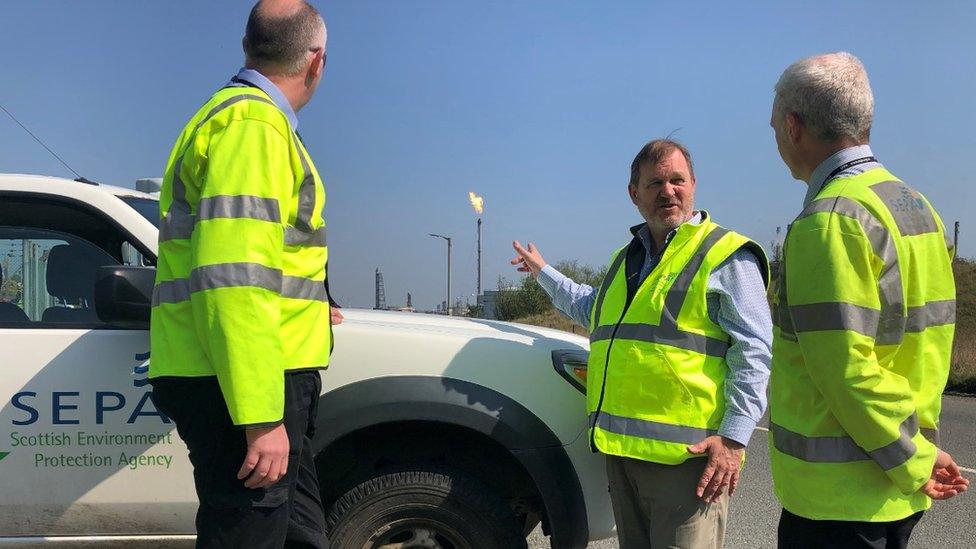
- Published25 April 2019
